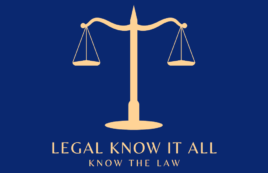A Power of Attorney (POA) is a legal document that allows one person, known as the “principal,” to designate another person, called the “agent” or “attorney-in-fact,” to act on their behalf in specific matters. This delegation of authority can cover a range of activities, from managing financial affairs to making healthcare decisions.

Key Aspects of a Power of Attorney
1. Types of Power of Attorney:
- General Power of Attorney: Grants broad powers to the agent in various matters.
- Special or Limited Power of Attorney: Limits the agent’s authority to specific tasks or situations.
- Healthcare Power of Attorney: Allows the agent to make medical decisions on the principal’s behalf.
- Durable Power of Attorney: Remains in effect even if the principal becomes incapacitated.
2. Choosing an Agent:
The principal should choose someone they trust implicitly, as the agent will have significant control over aspects of their life. This person could be a family member, friend, or a professional like a lawyer.
3. Scope of Authority:
The POA document should clearly outline what the agent can and cannot do. This can range from handling bank transactions to making decisions about medical care.
4. Duration:
A POA can be set for a specific period or be open-ended. A Durable Power of Attorney, in particular, is crucial for long-term planning, as it remains valid even if the principal loses the ability to make decisions.
5. Revocation:
The principal has the right to revoke the POA at any time, as long as they are mentally competent.
6. Legal Requirements:
The requirements for a valid POA can vary by state. Generally, it must be signed, witnessed, and notarized. It’s advisable to consult with a legal professional to ensure it meets all legal standards.
Why a Power of Attorney is Important
A POA is an essential tool for estate planning and managing affairs in case of illness, disability, or absence. It ensures that the principal’s matters are handled according to their wishes by someone they trust, even if they are unable to manage them personally.
As we delve deeper into understanding Power of Attorney, it’s beneficial to explore related legal topics that can provide a broader context. Legal Know It All offers a range of articles that can complement your understanding of legal matters, including those related to Power of Attorney. Here are some articles from their site that might be of interest:
1. Understanding Your Rights as a Tenant: A Detailed Guide
This article is crucial for anyone renting a property. Understanding your rights as a tenant can empower you to make informed decisions, much like understanding a Power of Attorney empowers you to make informed decisions about your legal and financial affairs.
2. Navigating the Probate Process: A Comprehensive Guide to Understanding and Managing Estate Settlement
The probate process is another key area where understanding legal documents, including Power of Attorney, is vital. This guide provides insights into managing estate settlement, which can be closely related to the functions of a Power of Attorney in managing affairs.
3. The Legal Landscape of CBD: A Brief Overview
While this topic might seem distinct from Power of Attorney, it’s another example of how legal landscapes can vary and affect different aspects of our lives. Just as laws around CBD are evolving, so too are the regulations and uses of Power of Attorney.
When it comes to legal matters like Power of Attorney (POA), it’s natural to have questions, especially about how it works and when it’s necessary. Here are some common questions and their answers to help clarify the concept and use of Power of Attorney.
What Situations Require a Power of Attorney?
A Power of Attorney is often used in situations where you might not be able to manage your affairs personally. This could be due to various reasons, such as:
- Travel: If you’re traveling and need someone to handle your affairs at home.
- Illness or Incapacity: If you become ill or unable to make decisions, a POA ensures that someone can legally make decisions on your behalf.
- Estate Planning: As part of managing your estate and ensuring that your affairs are in order.
Who Should I Choose as My Agent in a Power of Attorney?
Choosing an agent for your POA is a significant decision. It should be someone you trust implicitly, as they will have the authority to make decisions in your stead. Consider:
- Trustworthiness: The person should be reliable and have your best interests at heart.
- Capability: They should be capable of handling the responsibilities and understand your wishes.
- Availability: Ensure they are willing and able to take on the role.
Does a Power of Attorney Grant Unlimited Power?
No, a Power of Attorney does not grant unlimited power. The scope of the agent’s authority is defined in the POA document. You can limit what the agent can and cannot do. For example, you might grant them authority to handle financial transactions but not make healthcare decisions.
Is a Power of Attorney Permanent?
A Power of Attorney can be as permanent or as temporary as you wish. You can set it up for a specific period or for certain tasks. Additionally, a Durable Power of Attorney remains in effect if you become incapacitated, while a non-durable POA does not.
How Do I Revoke a Power of Attorney?
You can revoke a Power of Attorney at any time, as long as you are mentally competent. To revoke it, you should provide a written notice to your agent and to any institutions or parties that were aware of the original POA. It’s also recommended to consult with a legal professional to ensure the revocation is handled correctly.
Understanding Power of Attorney is crucial for effectively managing your legal and financial affairs. By knowing when to use it, who to appoint as your agent, and how to set its limits and duration, you can ensure that your affairs are handled according to your wishes, even if you’re unable to manage them yourself. 📜🔑👩⚖️📚
As an Amazon Associate we earn from qualifying purchases through some links in our articles.




